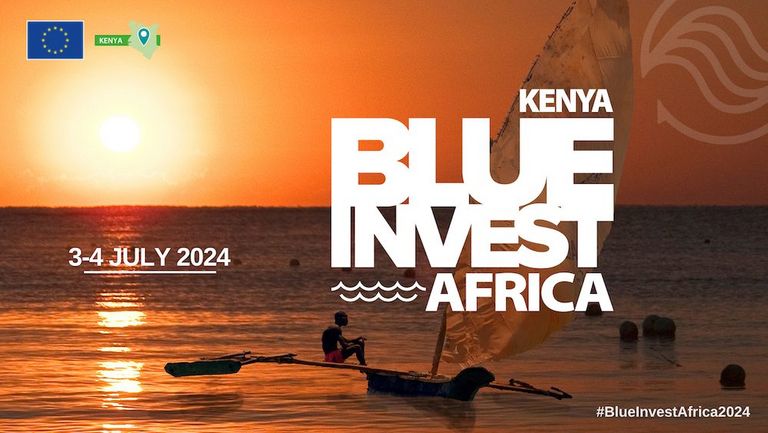Sectors & markets • COVID-19
The economic impact of the COVID-19 pandemic on the economy of Ghana

On Monday 30th March 2020, Mr. Ken Ofori-Atta, Minister of Finance, submitted a Statement to Parliament on the economic impact of the COVID-19 pandemic on the economy of Ghana.
A. INTRODUCTION
1. Right Hon. Speaker and Honourable Members of Parliament, I appear before you today to provide an update to you and the people of Ghana on the economic impact of the Coronavirus Disease 2019 (in short, COVID-19) pandemic on the economy of Ghana and measures the government is taking to mitigate the impact.
2. Mr. Speaker, you recall that when I appeared in this August House on Tuesday, 17th March 2020 to answer questions on the cost of printing the new GHS100 and GHS200 notes as well as on monies transferred from the Ghana Stabilisation Fund into the Sinking Fund in recent years, I used the opportunity to provide a brief update on the fiscal impact of the Coronavirus on the economy. I indicated then that I will come back to the House to provide a more detailed update on the macro-fiscal impact and the measures that Government is taking to mitigate the impact and, at the right time, seek for the necessary parliamentary approvals.
3. Mr. Speaker, last Friday night, in his fourth address to update the people on the country’s responses to the Coronavirus pandemic, President Nana Addo Dankwa Akufo-Addo directed the Finance Minister to prepare for approval by Parliament, a Coronavirus Alleviation Programme (CAP) to address the disruption in economic activities, the hardship of our people, and to rescue and revitalize our industries.
4. Mr Speaker, this is in line with achieving the five (5) key objectives the President has set out to combat the pandemic in Ghana ––
a. limit and stop the importation of the virus;
b. contain its spread;
c. provide adequate care for the sick;
d. limit the impact of the virus on social and economic life and;
e. inspire the expansion of our domestic capability and deepen our self-reliance.
5. Mr. Speaker, since the outbreak of the novel coronavirus in Wuhan, China, in late 2019, the virus has been spreading very fast around the globe and more recently in Africa. It is affecting some 199 countries and territories around the world. The World Health Organisation (WHO) declared the novel coronavirus a global pandemic on March 11 ––just 20 days ago. On that day, there were 4,500 new cases across the world, with only six in Africa. Cumulative confirmed cases worldwide was 118,400. Ghana recorded its first case the following day, March 12.
6. Mr Speaker, as at Monday, 30th March, 2020, 8:37 GMT, the Coronavirus Worldometer shows that the number of infected cases globally was 724,436 with 34,009 recorded deaths, and 152,065 recovered patients. In Ghana, the number of infected cases is 152 with 5 deaths and 2 recoveries.
7. Mr. Speaker, the disastrous impact of the coronavirus pandemic is already biting hard across the world. More than 65% of the global economy is under some form of lockdown or quarantine, and this will weigh heavily on economic activity in each and every country, with or without high rates of infection.
8. There is an imminent threat of a global recession arising from the Coronavirus pandemic, the extent of which is yet to be determined. But to what extent may be dependent on the measures we take today.
9. Mr. Speaker, in the case of Ghana, even though experts agree we are yet to reach our peak, preliminary analysis of the macro-fiscal impact of the pandemic shows that there is likely to be a significant slowdown in our GDP growth, significant shortfalls in petroleum revenues, shortfalls in import duties, shortfalls in other tax revenues, increased health expenditures, and tighter financing conditions with consequences on the 2020 Budget.
10. Mr Speaker, the two main areas driving the bulk of economic activities in Ghana, namely, the Greater Accra and Greater Kumasi areas, are also the very places mainly hit by the virus. From this dawn, these two centres of economic activity have been on a partial lockdown and will remain so for the next two weeks.
11. Mr Speaker, never before, in the history of the Fourth Republic, had the entire Ghanaian economy and society experienced such severe external shock by a single imported situation such as this. Certainly, never before, since Independence, has the Ghanaian economy faced such a sudden, dramatic all-round reduction in widespread consumer and corporate demand as a result of a single health crisis. The situation is not home-made. But, as the President said in one of his addresses to the nation since the coronavirus outbreak, “our survival is in our hands.”
12. Mr Speaker, its impact affects every Ghanaian either directly or indirectly; from the toddler who cannot attend nursery, to the grandmother who is compelled to stay away from her own close family members; from the employer, who sees demand dropping dramatically, to the employee, whose job and income are at risk. From big companies, drilling our oil offshore to the farmer, planting corn in the Afram Plains, and the street hawker, selling finished products on the streets of our big cities. The self-employed, especially, the hairdresser, the barber, the carpenter, the trader, the builder, the dressmaker, the musician, the trotro or taxi driver, the kayayie, are all already feeling the pinch from this global pandemic.
13. Mr Speaker, the virus does not discriminate, it is attacking big and small businesses, big and small, and they will be convalescing for I believe another two years unless our interventions are bold. Covid-19 is particularly damaging to SMEs because most of these businesses rely on social interaction, like hotels, restaurants, drinking bars, chop bars, small retail shops, hairdressers, barbers, builders, musicians, taxi drivers, Kayayies, and street hawkers.
14. Mr. Speaker, President Nana Addo Dankwa Akufo-Addo has introduced various measures to contain the coronavirus. The Bank of Ghana has announced a number of measures, including a 150 basis points drop in the policy rate to 14% and a reduction in the required reserve requirement from 10% to 8%, to mitigate the impact of COVID-19. I am here today to update the House on the potential economic impact of the coronavirus on the economy and the measures government is taking to mitigate the impact.
15. Mr. Speaker, the update will focus on:
a. potential impact of the COVID-19 on the global economy;
b. potential impact on the economy of Ghana;
c. Fiscal impact of the COVID-19 on the 2020 Budget; and
d. Measures being taken, in some cases being proposed, to mitigate the impact of COVID-19 on households, businesses, and government.


